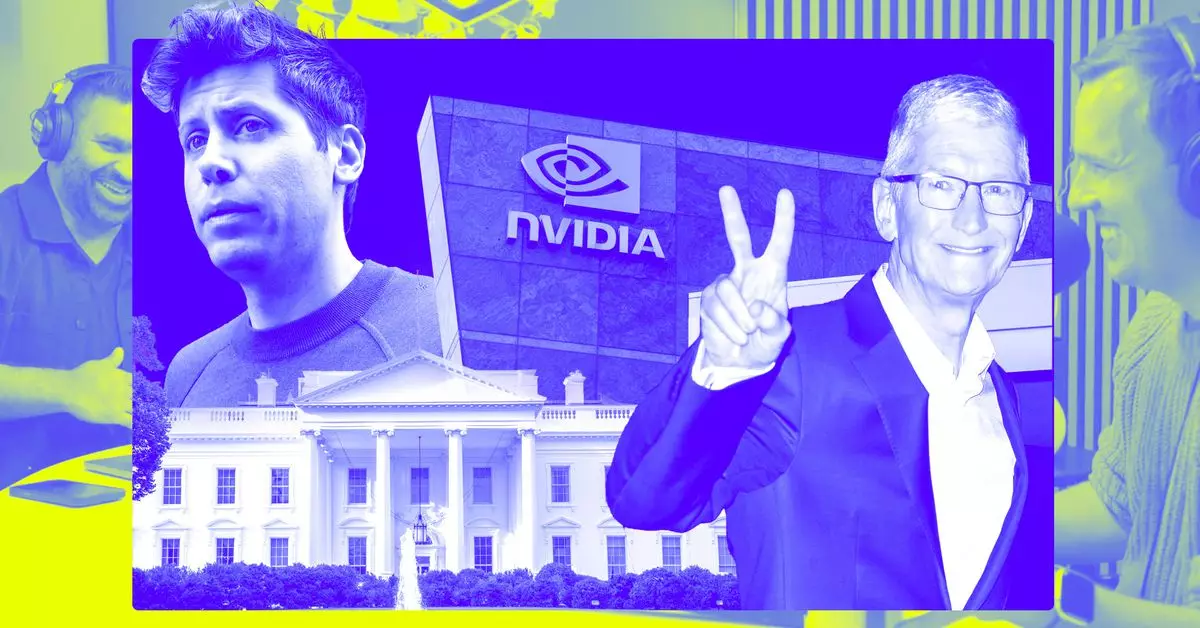The realm of technology is one of perpetual evolution, constantly shifting and reshaping our interactions, our lives, and even our businesses. As we gaze into the near future of 2025, an intriguing blend of speculation and stark reality beckons us. With a plethora of technological developments on the horizon, it is essential to assess what might unfold over the next year and how these potential advancements could reshape our present-day tech landscape.
One of the most critical questions lingering in the air is whether the current suite of CEOs at major tech firms such as Apple, Microsoft, and Google will survive the whirlwind of industry challenges to retain their seats. Observers are keenly watching whether Tim Cook will still helm Apple a year from now. Given the interconnected nature of technology and leadership transitions, it seems unlikely that substantial shifts would occur without significant catalysts. Hence, it’s conceivable that the titans of tech will stand firm in their respective positions, albeit facing mounting pressures related to regulation and public sentiment.
As we look further into the crystal ball of 2025, Nvidia’s trajectory becomes crucial in evaluating the future tech landscape. With the proliferation of artificial intelligence and sophisticated graphics technologies, there is a compelling case for Nvidia obliterating previous standards for market value. The convergence of AI into various industries continues to fuel Nvidia’s growth, possibly cementing its position as the most valuable company in the tech sector. Speculation around its potential valuation has, therefore, reached fever pitch, though there remains skepticism in some quarters about whether it can maintain such dominance in an ever-evolving market.
A perennial theme in tech discussions revolves around acquisitions and how companies adapt to shifting consumer preferences. One burning question concerns Snap’s future in a rapidly fluctuating market. Will it find a buyer, or is it destined to flounder on its own? Similarly, excitement surrounding innovative platforms such as Bluesky and Threads encapsulates the community’s expectations of new entrants disrupting established applications. While Bluesky appears to be gaining traction, can it rise to prominence while overshadowing Threads? The ever-intensifying competition leaves many pondering the trajectory of these emerging platforms.
The social implications of artificial intelligence and its remarkable capabilities have stirred global discourse. As we stride toward 2025, an “AI scandal” has the potential to reverberate throughout the industry, raising crucial ethical questions. As technology becomes increasingly integrated into everyday lives, governments and organizations may have to grapple with regulatory frameworks that could change the digital environment significantly. The urgency to take a closer look at the implications of AI’s rapid advancements has never been higher, especially in light of its potential pitfalls.
The Streaming Wars: The Fight for Dominance
As the digital entertainment landscape evolves, the competition among streaming services like Netflix, Paramount Plus, and others becomes increasingly saturated. Each player’s survival faces scrutiny as older institutions tumble while newcomers vie for connections with audiences. The anticipation surrounding new content and innovative delivery methods heightens the stakes. As Netflix invests in live programming, will it finally manage to dethrone traditional cable networks, or is the future of cable secure? Predictions flood the conversation, but the only certainty lies in the desire for captivating content in an oversaturated market.
The consumer tech arena remains an intriguing battleground, especially concerning the popularity of folding phones and the allure of smart home devices like Alexa. Have folding phones truly reached mainstream acceptance, or do they still linger on the fringes of innovation? Exploring market trends and consumer preferences can uncover whether these devices will flourish or falter. Additionally, as smart home technology continues to evolve, the appeal of next-gen voice assistants raises questions. Will these innovations capture the imagination of users or become another fleeting tech trend?
In summation, as we stand on the brink of 2025, the landscape of technology promises a tapestry woven with uncertainty and potential. From the steadfastness of industry leaders to the emergence of new platforms aiming to challenge the status quo, this exploration into our tech future captures the essence of curiosity and anticipation. What remains is the question: how will these predictions hold up against the tides of innovation and disruption? Only time, in its ever-mysterious flow, will provide clarity.


Leave a Reply